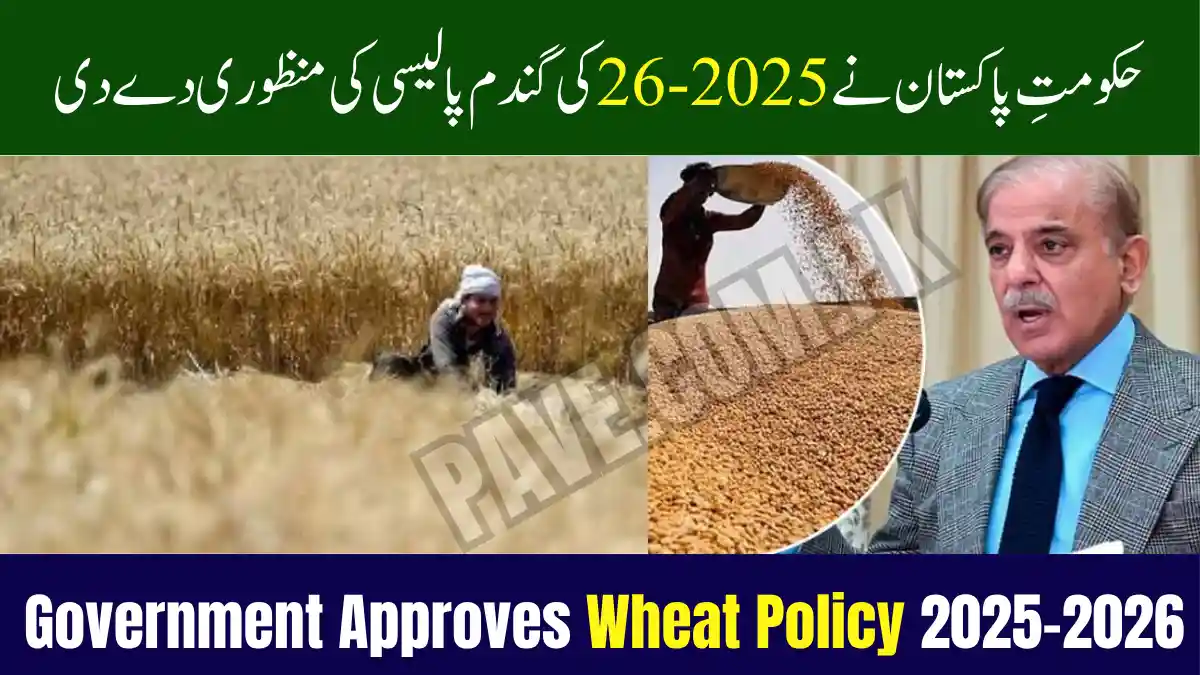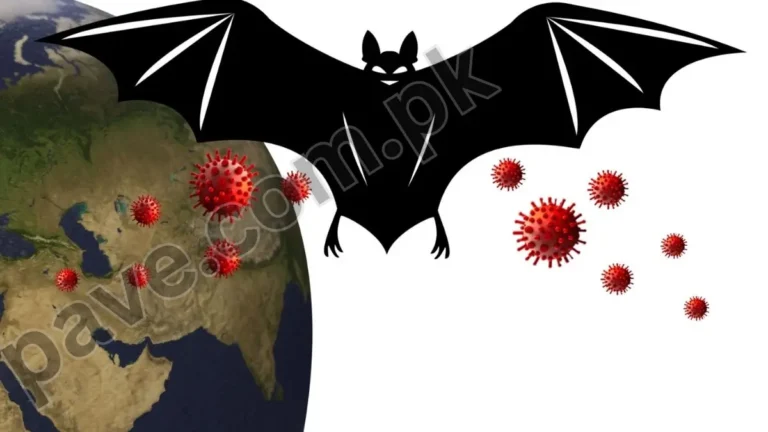Government Approves Wheat Policy 2025–2026: A Historic Step for Farmers’ Prosperity

The Government of Pakistan has officially approved the Wheat Policy 2025–2026, setting the support price at Rs. 3,500 per maund to protect farmers, stabilize the domestic market, and ensure national food security.
Prime Minister Muhammad Shehbaz Sharif chaired a high-level meeting in Islamabad, attended by the Chief Ministers of Punjab, Sindh, Balochistan, and Gilgit-Baltistan, the representative of Khyber Pakhtunkhwa’s Chief Minister, and the Prime Minister of Azad Jammu & Kashmir, along with senior federal and provincial officials, agricultural economists, and representatives of farmers’ associations.
This policy marks one of Pakistan’s most comprehensive and consensus-driven agricultural frameworks in recent years — balancing farmer welfare, national food needs, and market sustainability.
Wheat Support Price Fixed at Rs. 3,500 per Maund
As per the approved Wheat Policy 2025–26, the government will purchase wheat from farmers at Rs. 3,500 per maund, aligning with international import parity prices. This step aims to ensure fair returns for local producers while discouraging unnecessary imports and maintaining stable domestic supply.
Officials confirmed that the federal and provincial governments are expected to jointly procure around 6.2 million metric tons of wheat from the upcoming harvest season to maintain strategic reserves. The Pakistan Agricultural Storage and Services Corporation (PASSCO) has been instructed to procure an additional 400,000 metric tons beyond its usual target to strengthen the country’s food stockpile.
This support price not only protects farmers from global market volatility but also encourages them to expand wheat cultivation in the next season — crucial for maintaining Pakistan’s self-sufficiency in food grains.
Prime Minister’s Vision: “Farmers Are the Backbone of Pakistan’s Economy”
Addressing the meeting, Prime Minister Shehbaz Sharif emphasized that Pakistan’s identity as an agricultural economy hinges on the well-being of its farmers.
“Wheat is not just a crop — it is the foundation of our national food security and a symbol of the farmer’s hard work,” the Prime Minister said.
“Our government is fully aware of the challenges faced by the farming community. Through the Wheat Policy 2025–2026, we are ensuring both economic stability for farmers and affordability for the people of Pakistan.”
The Prime Minister highlighted that the Wheat Policy 2025–2026 was developed after extensive consultations with provincial governments, farmer organizations, industrial stakeholders, and agricultural experts.
He further added,
“This is a national consensus policy — one that serves the interests of both the producers and consumers. It will promote agricultural productivity, ensure fair income for growers, and contribute to food security for every household.”
Key Highlights of the Wheat Policy 2025–2026
The official briefing shared during the meeting outlined several key components of the new policy:
- Support Price: Rs. 3,500 per maund — aligned with international import parity rates.
- Strategic Reserves: 6.2 million metric tons to be jointly procured by federal and provincial governments.
- Additional Procurement: PASSCO to acquire 400,000 additional metric tons of wheat.
- Open Market Operations: Procurement designed to maintain fair competition and avoid market distortion.
- Inter-Provincial Movement: No restrictions on wheat transportation across provinces to ensure national availability.
- Monitoring Mechanism: A National Wheat Oversight Committee will monitor implementation weekly.
- Direct Farmer Support: Farmers to be paid promptly through transparent, digital payment systems.
This comprehensive framework ensures that the benefits of the wheat policy directly reach the farming community, while maintaining steady market conditions for consumers.
Read More: CM Punjab Grow More Wheat Program 2025
Formation of National Wheat Oversight Committee
The government has formed a National Wheat Oversight Committee, chaired by the Federal Minister for National Food Security and Research, with representation from all provincial governments.
The committee will:
- Monitor the implementation of policy directives,
- Ensure price stabilization and smooth procurement,
- Review market trends and stock levels, and
- Report weekly to the Prime Minister.
This coordination body will also work closely with PASSCO, provincial food departments, and farmer associations to streamline procurement, minimize wastage, and ensure fair practices throughout the supply chain.
Ensuring Food Security Through Stable Reserves
A major focus of the Wheat Policy 2025–2026 is to strengthen Pakistan’s strategic food reserves, safeguarding the country against external shocks such as global price hikes or supply chain disruptions.
Officials emphasized that with 6.2 million metric tons of reserves, Pakistan will have sufficient capacity to cover national consumption requirements while maintaining a buffer for emergencies or export opportunities.
This proactive approach will help stabilize local markets, reduce dependency on imports, and protect consumers from inflationary pressure on essential food commodities.
Wheat Procurement Linked to Global Prices
For the first time, Pakistan’s wheat procurement price has been formally aligned with international import parity rates. This ensures that farmers receive a fair and competitive price, preventing market distortion while discouraging speculative imports that often harm domestic producers.
Agricultural experts praised the move, saying it reflects a data-driven, globally benchmarked approach that brings Pakistan’s farm economy in sync with international standards.
The Rs. 3,500 per maund support price is projected to generate strong farmer confidence, particularly in Punjab and Sindh, where wheat remains the dominant Rabi crop.
Farmers’ Welfare at the Heart of the Policy
Prime Minister Shehbaz Sharif reiterated that the government’s top priority is to improve farmers’ income, reduce production costs, and promote mechanized, climate-resilient agriculture.
“Farmers are the backbone of our economy,” he stated. “Their welfare is central to our national prosperity. Every policy decision we make — whether in pricing, irrigation, or subsidies — must uplift the rural economy.”
The policy builds upon the government’s ongoing initiatives such as:
- Interest-free loans under the Kissan Card program,
- Fertilizer subsidy packages,
- Tractor and farm machinery loans, and
- Crop insurance and digital record systems.
Together, these programs aim to modernize the agriculture sector, ensuring inclusivity, innovation, and long-term sustainability.
Provincial Cooperation and Consensus-Based Policy Formation
The federal government praised the active cooperation of provincial administrations in formulating the Wheat Policy 2025–2026. Punjab, Sindh, Balochistan, and Gilgit-Baltistan all participated in the extensive consultation process, along with the representatives from Azad Jammu & Kashmir and Khyber Pakhtunkhwa.
Each province contributed valuable insights regarding local conditions, storage capacity, and procurement logistics, helping shape a unified, implementable framework.
This coordination reflects a whole-of-Pakistan approach — one where national food policies transcend political boundaries to serve collective agricultural interests.
Promoting Fair Competition and Free Trade Among Provinces
A notable feature of the Wheat Policy 2025–26 is the government’s decision not to impose any inter-provincial movement restrictions. This ensures smooth wheat supply chains across the country and discourages artificial market shortages.
Farmers will now have the flexibility to sell their produce freely, wherever better prices are available, while provincial food departments focus on procurement, quality testing, and storage efficiency.
The step also promotes healthy competition and fair pricing among private and public buyers — essential for a transparent grain market.
Economic Significance: Boosting Rural Income and Reducing Imports
Economists predict that the Sindh and Punjab agricultural economies will experience significant gains from this policy, as fair pricing encourages higher cultivation area and productivity.
With improved farmer confidence and better procurement mechanisms, Pakistan aims to reduce dependence on costly wheat imports, saving billions in foreign exchange annually.
Moreover, the policy encourages post-harvest management, warehousing investment, and private sector participation, which will further strengthen the agricultural supply chain.
Read More: Good News for Farmers: Punjab Government Reduces Certified Wheat Seed Price by Rs1000 per Bag
Weekly Monitoring and Direct Reporting to the Prime Minister
The newly formed National Wheat Committee will hold weekly progress meetings, assessing purchase volumes, payment timelines, and stock management.
A digital dashboard linked to the Prime Minister’s Office will track real-time procurement data, ensuring that farmers are paid on time and at the announced rate.
Such oversight mechanisms reflect the government’s commitment to good governance, transparency, and accountability in agricultural procurement — a sector long criticized for inefficiency and red tape.
A Policy for Sustainable Agriculture and Food Security
Experts believe that the Wheat Policy 2025–26 represents a shift from short-term interventions to long-term sustainability. It promotes self-reliance by incentivizing domestic production and reducing vulnerability to international market fluctuations.
This initiative aligns with the government’s Food Security Vision 2030, which focuses on:
- Climate-smart agriculture,
- Efficient irrigation systems,
- Seed innovation, and
- Public-private collaboration in storage and logistics.
By prioritizing wheat — Pakistan’s staple food — the government ensures that no family faces shortages or inflated prices due to mismanagement or speculation.
Conclusion: A Turning Point for Pakistan’s Agriculture Sector
The approval of the Wheat Policy 2025–2026 marks a transformative moment for Pakistan’s agriculture sector. By setting the support price at Rs. 3,500 per maund, the government has sent a powerful message — that farmers’ welfare and national food security go hand in hand.
Through transparent procurement, inter-provincial cooperation, and strong oversight, this policy strengthens both the economic foundation of rural communities and the stability of Pakistan’s grain markets.
Prime Minister Shehbaz Sharif’s vision of a prosperous, self-sufficient, and farmer-focused Pakistan takes another step forward with this bold, future-oriented initiative.










